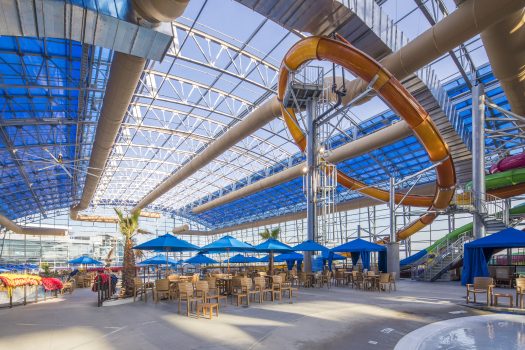In a brief statement to the New York Times, David Sangree weighed in on the performance of Trump Hotel properties. The article highlights the annual financial report released in May of 2018.
Published by: Steve Eder, Eric Lipton and Agustin Armendariz/New York Times
Published date: May 2019
President Trump’s family business saw its overall revenues decline modestly in 2018, according to his annual financial report released Thursday, suggesting a disconnect between the Trump brand and the still-growing national economy.
The revenue declines were most pronounced at some of Mr. Trump’s best-known properties, including the Mar-a-Lago resort in Florida, which experienced a nearly 10 percent drop. Hotels in Chicago and Hawaii, as well as golf courses in Los Angeles, Philadelphia and the Bronx, also saw declines, suggesting that sales are being affected by consumers deciding to turn away from the Trump brand, industry analysts said.
The results were somewhat better for the Trump International Hotel in Washington, which has become a favored spot for Republicans, lobbyists and some foreign governments and accounts for nearly 10 percent of the Trump Organization’s revenues.
The hotel took in $40.8 million, up about 1 percent from what it reported in 2017. The intersection of Mr. Trump’s business and his official role at the Washington hotel is at the heart of lawsuits accusing him of violating the emoluments clauses of the Constitution, which seek to limit the financial benefits a president can receive from foreign and state governments.
The fresh look at how Mr. Trump’s businesses have performed during his presidency comes as the Trump family is facing increased scrutiny from government investigators, in part focusing on business operations at the Trump Organization, which is now run by two of Mr. Trump’s sons, Eric Trump and Donald Trump Jr. The filing, which totals 88 pages, covers the 2018 calendar year.
The company had small upturns at some properties, including an improvement at its single-biggest revenue-generating property, Trump National Doral in Florida, which the Trump family purchased in 2012 and then spent $250 million renovating. Trump Doral’s revenue in 2018 increased to nearly $76 million, up about 2 percent from the previous year. The Trump golf course in Turnberry, Scotland, also had a considerable jump in revenues, reaching $23.4 million, up 15 percent.
In total, Mr. Trump reported 2018 revenues of at least $434.9 million, down about 4 percent from the $452.6 million he reported a year earlier. He reported assets worth at least $1.4 billion, about the same as 2017.
The disclosure made public on Thursday was the fifth that Mr. Trump has filed since declaring his candidacy for president in 2015. With his refusal to make his tax returns public, the annual disclosure offers an accounting of his assets, investments and debt related to his private business ventures. Mr. Trump reported investment and cash accounts with holdings of at least $47.5 million last year, down from $58.1 million in 2017.
The disclosure is limited; it does not show profits or losses, and assets are valued only in ranges, making it impossible to pinpoint Mr. Trump’s precise net worth.
But the financial disclosure underscores how the president’s business, the Trump Organization, has become a more modest company than it was just a few years ago, when Mr. Trump spoke of a large pipeline of new deals even as he pledged to back away from any involvement in its management. Since he took office, the Trump name has been stripped from some buildings, and his company has shelved plans to start two new midrange hotel chains.
Mar-a-Lago, where Mr. Trump regularly travels during the winter months, had one of the largest declines of the company’s major assets. The company said the drop-off could be attributed to fewer new memberships being sold, at a cost of $200,000 apiece.
Eric Trump said in a statement that he was pleased with the company’s continued performance.
“Our company had an exceptional 2018,” he said.
That retrenchment appears driven mostly by political factors, given that the economy has been relatively strong for the past several years. Mr. Trump’s polarizing policies and increasingly intense clashes with Democrats have turned off some potential customers and clients, particularly in heavily Democratic cities like Chicago.
“You have the president of our country being on a hotel brand and being very controversial,” said David J. Sangree, an Ohio-based hotel industry consultant. “You have some people who are choosing not to stay there. But in another market — Washington — he is gaining share.”
To read the entire article at the New York Time, click here.


